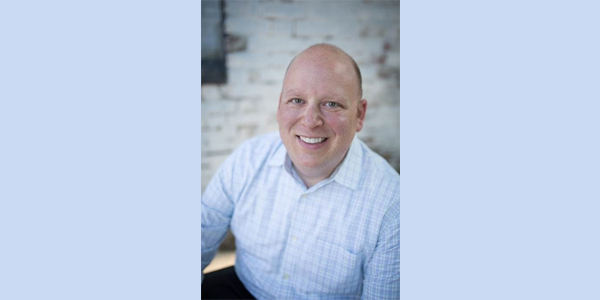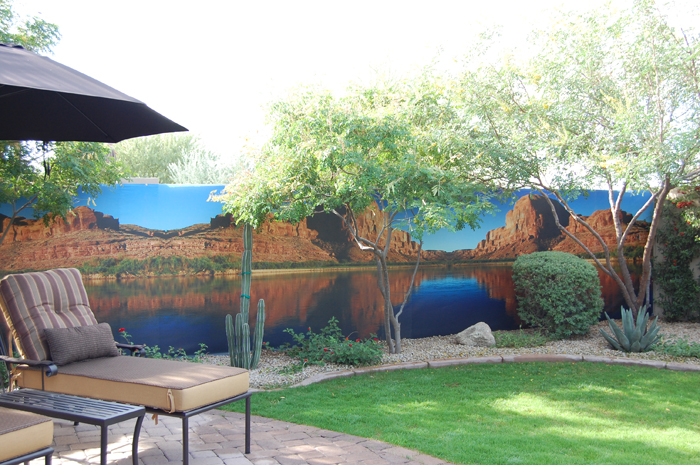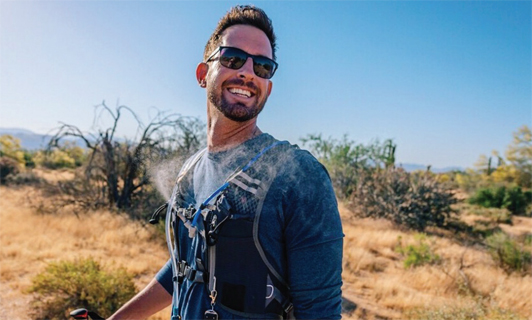In the middle of May, Graham Hoffman will become president and CEO of both the Jewish Federation of Southern Arizona and the Jewish Community Foundation of Southern Arizona. Graham has held the position at the Foundation since 2018 and will be taking over at the Federation for Stuart Mellan, who has been president and CEO since 1995.
While there are other communities where the Federation and Foundation have come together as one, Tucson is a unique situation. “We did not make a decision to merge, and we are not approaching this as a merger,” explains Graham. “We’re approaching it as two organizations with one CEO at the moment, and over time, we will work with the boards of both organizations to figure out the best path forward. It represents a unique opportunity, in my view, for us to leverage the strengths of both organizations with common leadership.”
Graham and Stuart spent more than 10 months engaged in the community planning process evaluating data, including that from a survey where roughly 1,800 people responded. Through that data, decisions can be made about what’s in the best interest of the community for the long term.
“It became clear that the success of the Federation and the success of the Foundation should be measured by the success of the agencies and of the Jewish community that they
support and facilitate,” says Graham. “Aligning the work of these two organizations, creating greater synergy between them and identifying opportunities for them to be coordinated and collaborate in the work that they did made much more sense.”
Ironically, Graham had never intended to go into Jewish communal work, but his background, both personally and professionally, makes him an ideal candidate for this particular position.
He was working as a consultant at Accenture, a multinational professional services company, when he was recruited to do work for Hillel International in Washington, DC. “I took a leave of absence from Accenture for a year and started doing internal consulting for Hillel, traveling around the country helping with their accreditation process,” says Graham.
From there, he moved on to facilitate Hillel’s first global strategic planning process, implementing a strategic plan and some key initiatives. He then transitioned into a senior strategy role for the next 10 years.
During that time, he also helped develop a successful engagement program. They would identify the influencers in social networks on college campuses, hire them to be engagement interns, and then their job was to build relationships with 50 of their uninvolved peers and to connect those students to Jewish life.
Through this process, they were able to reach an incredible number of previously uninvolved Jewish students.
Many of these engagement interns, who themselves were previously uninvolved Jewish students, went on to become leaders both on campus and in the Jewish community around the world. “It became a transformative model for Hillel, and it has shaped the way that many in the Jewish world now understand engagement work.”
After Hillel, Graham went to AIPAC for five years, where he worked in development and oversaw its major gifts fundraising work, major philanthropic foundation and endowments. “From there, I was recruited to run the Foundation here in Tucson,” says Graham.
Coming to Tucson reminded Graham of his roots in the Midwest, where people are friendly, caring and grounded. “The volunteers, the families, the individuals are just remarkable,” states Graham of his new city. “It’s a deeply committed community of folks who understand that if you want to have outstanding Jewish life, then you have to stand up and be a part of it.”
Graham’s parents divorced when he was less than a year old, and he spent time between the homes of his mother and stepfather in Milwaukee, WI, and his father and stepmother in Chicago, IL.
His mother and stepfather kept a conservative home and Graham went to synagogue, community day school and was very involved in Jewish life. When his parent’s lost a dear friend to cancer, they delved deeper into their religion. Eventually, they became a part of the ultra-Orthodox community under Rabbi Michel Twerski, of Hasidic rabbinic dynasty descent.
On the other side, Graham’s father had remarried a non-Jewish woman and they had a “secular Jewish home,” and when he went to visit for the weekends, it would be “restaurants and movies on Saturday.”
Growing up between these two households gave Graham an appreciation for pluralism, but it also created a need to individuate himself.
“Just after my bar mitzvah, I needed to figure out what kind of Jewish life and observances were going to work for me,” he says. “What elements of my Jewishness were going to stay consistent regardless of where I was.”
In Graham’s current position, he wants to help people facilitate ownership of their Jewish journey, but he also wants people to know that there is a difference between engagement and stewardship.
“Engagement is helping them with their Jewish journey and helping them chart their course; stewardship is cultivating relationships with people to facilitate their increased investment in Jewish life,” explains Graham. “So we can only be honest brokers in engagement if we’re willing to honestly and carefully separate that from stewardship and fundraising, which in my view is totally doable.”
Stuart has been an innovator among Federation leaders for his understanding of the importance of community engagement, and he was instrumental in the creation of The Weintraub Israel Center, which provides educational experiences, advocacy and outreach.
Graham wants to continue this vital work. “We want to facilitate an ownership of Jewish experience for every Jewish individual and every family – to define, prioritize and determine the kind of Jewish experiences that are meaningful for them,” he says. “We want to provide them with lots of great offerings, exposure and opportunities and to lower the barriers for involvement so that they don’t ever feel they’re ‘not Jewish enough’ to participate.”
While the situation with COVID-19 may not have made this the ideal transition time, Graham remains optimistic. “This time brings with it challenges that we have not faced before,” he says. “I certainly would not have wanted it to be the way that things began, but the truth is that there are a lot of things I think that will come out of this that will help us.”
For more information on the Jewish Federation of Southern Arizona, visit jfsa.org; for the Jewish Community Foundation of Southern Arizona, visit jcftucson.org.






